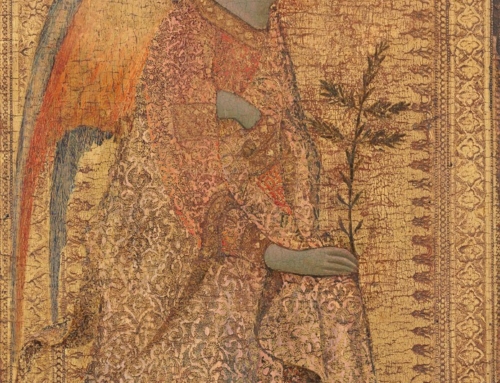 A debate has been cooking amongst various bloggers who are atheists about whether there is such a thing as objective morality. I was interested in the observations that animals behave in a ‘moral’ way–elephants grieve their dead herd members, dogs stand loyally beside the grave of their dead master, monkeys share and gorillas are tender toward their young. Is nature red in tooth and claw? I wrote about it here. It’s an interesting question. If animals are ‘moral’ then does that prove that morality is just a natural evolutionary development or does it prove that ‘morality’ runs through the warp and woof of everything and therefore is an objective part of the created order?
A debate has been cooking amongst various bloggers who are atheists about whether there is such a thing as objective morality. I was interested in the observations that animals behave in a ‘moral’ way–elephants grieve their dead herd members, dogs stand loyally beside the grave of their dead master, monkeys share and gorillas are tender toward their young. Is nature red in tooth and claw? I wrote about it here. It’s an interesting question. If animals are ‘moral’ then does that prove that morality is just a natural evolutionary development or does it prove that ‘morality’ runs through the warp and woof of everything and therefore is an objective part of the created order?
Then it occurred to me today while celebrating Mass for the memorial of St Isaac Jogues and St Jean deBrebeuf and their companions that the morality we observe in natural circumstances (monkeys being kind or gorillas protecting their babies, or elephants grieving) has it’s developed form in the morality we expect within our social and familial structures. We expect people not to steal or step on someone’s toes on purpose. We expect people not to kill and wound one another intentionally. OK. That is reasonable enough and one might see how it could have evolved, but what the matryrs teach us by their example, and what Jesus Christ demands is something far greater than mere morality. He does not demand morality he demands martyrdom. (If you are not familiar with the heroic story of St Isaac Jogues you can read about it here.)
He points out that everyone loves their own. So what. He commands us to love our enemies. He demands that we turn the other cheek and to the one who asks for our coat we should give our shirt as well. He demands more: “Unless you take up your cross and follow me you cannot be my disciple.” Not, if you like that sort of thing and feel called you may take up your cross if you wish. It’s a mandate. It’s not an option. What he demands is total service and self sacrifice. One might argue that mere morality evolves as a tribe of people figured out that it was a better way to live and a better way to survive. I personally doubt it because the moral tribe would always be the weaker tribe and their neighbors would attack and have them for supper, so the moral and nice tribe would always end up in the cooking pot. Nevertheless, we might say, for the sake of argument that social morality evolved.
But where on earth did this idea of self sacrifice and total service to others come from? Where on earth did it come from? That’s the point. It didn’t come from anywhere on earth. That is to say, the idea of martyrdom and total self service is so radical and counter cultural and against all human instincts that it could not have come about from a human instinct. The human instinct to survive and thrive could not have produced the motivation for martyrdom–even if they did kill you quick.
What I am suggesting here is not only that an objective morality exists, and therefore an objective source of that morality, but that this supernatural source of morality does more than provide a sensible source for morality–a kind of book of etiquette for respectable people. Instead that source of morality reveals something which is far more radical than morality–and that is martyrdom. The revelation of God in Jesus Christ, and seen in every age in the lives and deaths of the holy martyrs indicates the existence of a ‘morality’ so radical that it could only have come about through an infusion of another some strange and bizarre (from a human point of view) intelligence.
Of course, the Catholic faith says this radically unusual intelligence is revealing through the mystery of the cross and the martyrdom of the saints the essence of his own nature. We believe that God himself is not only ‘moral’ but a martyr. That is he is constantly in a multitude of mysterious and marvelous ways pouring out his life for the life of the world. That’s not only what he does. That’s what he IS.



Leave A Comment
You must be logged in to post a comment.